Introduction
The Law of limitation is one which prevents disturbance or deprivation of what may have been acquired in equity and justice by long enjoyment or what may have been lost by party’s own inaction, negligence or laches1. As a concept, limitation is germane to actions for recovery of money and almost all jurisprudence, even globally, provide for a timeline, within which and remedy for recovery of money is available.
IBC and Limitation
To the surprise of many, the concept of limitation found no mention in the Insolvency & Bankruptcy Code, 2016 (“IBC”) at the time when it was notified in December 2016. Naturally, this led to a significant amount of debate. In one of its early judgments on this point, the National Company Law Tribunal (“NCLT”) discussed the question of time barred debts and held that provisions of the Limitation Act, 1963 (“Limitation Act”) will be applicable to proceedings under IBC and a claim which was time barred, could not be considered by NCLT, as the same is unenforceable2. This was later followed by a catena of judgements by various other Benches of NCLT3. Thereafter, the National Company Law Appellate Tribunal4 (“NCLAT”) entered the arena and while it held that the Limitation Act is applicable to IBC, it left certain aspects uncertain and open to debate.
Ultimately, in June 2018, Section 238A was inserted in IBC which expressly provides that the Limitation Act is applicable to proceedings under IBC. Thereafter, the Supreme Court, in a landmark judgment6, was faced with the question of retrospective applicability of the aforesaid amendment and held that the Limitation Act has been applicable from the inception of IBC in 2016.
Recent Controversy
When all assumed that limitation and its applicability stood finally settled in the insolvency space, the year 2020, brought with itself, a series of judgements of NCLAT which went back and forth on the question of whether all the provisions of the Limitation Act will be applicable to proceedings under IBC. The discussion focused on issues such as acknowledgment of a debt resulting in extension of limitation in the context of IBC (as it does in the case of a standard civil action for recovery). Another question discussed, which was of substantial significance to financial lenders, was whether the date of declaration of NPA would determine limitation and whether acknowledgment of debt in a balance sheet would extend limitation for the purposes of IBC actions.
This led to a series of conflicting judgments being passed by the NCLT and NCLAT. To the utter dismay of financial lenders like banks and asset reconstruction companies, at first, the NCLAT held that entries in a balance sheet do not constitute acknowledgement of liability under the provisions of the Limitation Act7 and that even generally, Sections 14 (providing for exclusion of time lost in bonafide proceedings before another Court) and Section 18 (providing for extension of limitation on acknowledgment of liability) have no applicability to proceedings under IBC8. Since these judgments were by 3 and 5 member Benches of the NCLAT, these were followed across various cases, albeit reluctantly. Such was the indignation against this view, that a 3-member Bench of the NCLAT attempted to reconsider the Order in the case of V Padmakumar (supra) and referred the issue once again to a 5-member Bench. However, the 5 Member Bench of NCLAT reaffirmed its decision and reasoning in V. Padmakumar, thereby, cementing the view of the NCLAT on these issues.
Supreme Court settles the Dust
The controversy reached the Supreme Court in early 2021 resulting in a series of judgements which settled the issue of applicability of the Limitation Act to proceedings under IBC. The key highlights are as follows:
a. The concept of extension of limitation on acknowledgment of debt applies to IBC as well. As an instance, this would mean that if a debt became due in 2015 and the debtor acknowledged liability to make payment in 2017, a fresh period of limitation would commence in 2017 and IBC proceedings can be initiated any time before 2020.
b. The time spent by a creditor in pursuing remedies under Securitisation and Reconstruction of Financial Assets and Enforcement of Security Interest Act, 2002 (the “SARFAESI Act”) or The Recovery of Debts and Bankruptcy Act, 1993 (the “RDB Act”), would stand excluded.
c. Entries in the books of accounts and/or balance sheets of a debtor would amount to an acknowledgement of liability for the purposes of limitation. This means that if a debtor acknowledges a debt in its balance sheet year on year, a fresh period of limitation commences every year.
d. A Recovery Certificate issued by DRT gives a fresh lease of life to a claim of a financial creditor and extends the period limitation to initiate proceedings under IBC.
Conclusion
The NCLAT Orders, in our respectful view, holding that balance sheet acknowledgment would not extend limitation for IBC proceedings or that even generally acknowledgment of debt would not extend limitation for IBC proceedings, were inherently flawed. In fact, till the judgments subsisted, several NCLT Benches following this position of law, but only reluctantly as it went against the most fundamental principles of the law of limitation. In fact, such was the ramification, that asset reconstruction companies whose business model is to take assignment of debt, stood to lose the right to initiate IBC proceedings for several defaulting borrowers as such defaults are generally quite old before they are assigned, with acknowledgment of debt being the basis for later recovery actions, regardless of date of declaration of NPA.
The judgments of the Supreme Court have brought about the much-needed clarity on this aspect; however, the interpretation is perhaps much too financial creditor friendly in so much as the Supreme Court has said that the time expended in proceedings before Debt Recovery Tribunals (“DRT”) or even in proceedings under the SARFAESI Act would stand excluded. While this seems innocuous at a glance, practical application can be quite extreme in certain cases. For instance, if a debtor has defaulted in as far back as in 2012, and a Bank had initiated DRT proceedings in 2014 (which can quite possibly be pending till date), the entire time spent before the DRT would stand excluded and IBC proceedings can be initiated by the lender years after the actual default. This view however does not come as a surprise as it fits right into the financial creditor friendly regime of IBC.





